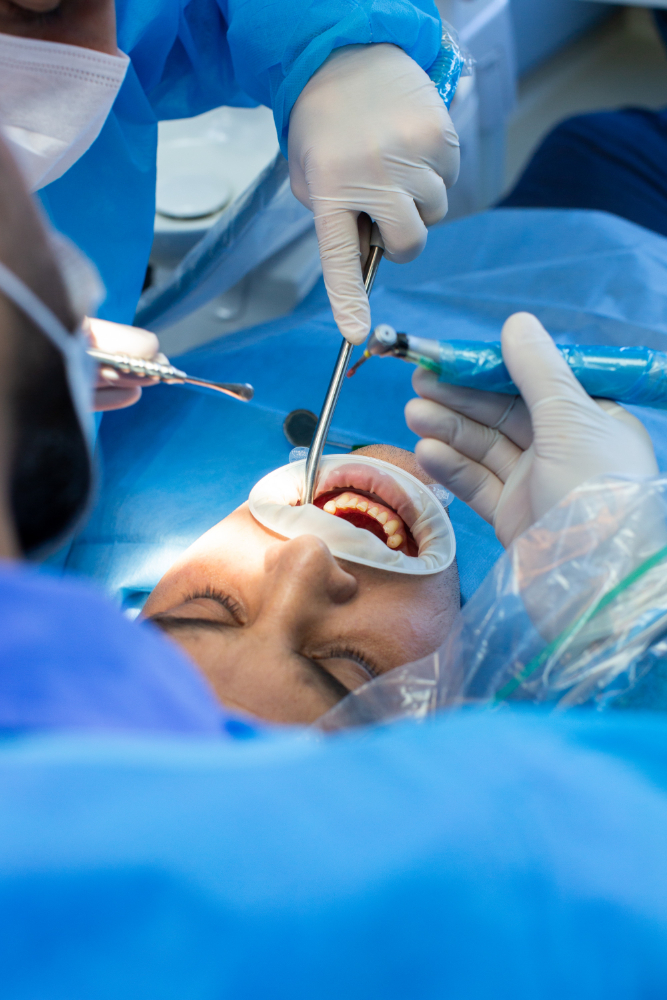
Full mouth periodontal surgery, also known as full mouth disinfection or full mouth debridement, is a comprehensive dental procedure aimed at treating advanced gum disease (periodontitis) that affects the entire mouth. Here’s a detailed overview of the process:
Initial Assessment: Before the surgery, the dentist or periodontist will conduct a thorough examination of your gums and teeth, including probing depths, X-rays, and other diagnostic tests, to assess the extent of gum disease and determine the appropriate treatment plan.
Preparation: On the day of the surgery, local anesthesia or sedation may be administered to ensure your comfort throughout the procedure. The dental team will also provide you with instructions on how to prepare for the surgery, including any pre-operative medications or precautions to take.
Deep Cleaning (Scaling and Root Planing): The surgery begins with scaling and root planing, which involves removing plaque, tartar, and bacterial toxins from the surfaces of the teeth and below the gumline. This deep cleaning process helps to eliminate the bacteria and debris that contribute to gum inflammation and disease.
Pocket Reduction Surgery: If the gum disease has caused deep periodontal pockets to form around the teeth, pocket reduction surgery may be necessary to reduce their depth and facilitate better oral hygiene. During this procedure, the gums are gently lifted away from the teeth to access the underlying roots and remove any diseased tissue. The bone may also be reshaped to promote healing and prevent further bone loss.
Bone Regeneration: In cases where significant bone loss has occurred due to periodontal disease, bone grafts or other regenerative techniques may be used to restore the lost bone structure and support the teeth. This helps to stabilize the teeth and prevent tooth loss.
Soft Tissue Grafting: If gum recession has occurred as a result of periodontal disease, soft tissue grafts may be performed to cover exposed tooth roots and enhance the appearance of the gums. This can also help to reduce tooth sensitivity and protect the roots from decay.
Suture Placement: After the surgical procedures are completed, sutures (stitches) may be placed to secure the gums in their new position and promote proper healing. The type of sutures used will depend on the extent of the surgery and your individual needs.
Post-Operative Care: Following full mouth periodontal surgery, your dentist or periodontist will provide you with detailed instructions on how to care for your gums and teeth during the healing process. This may include recommendations for pain management, dietary modifications, and oral hygiene practices to minimize discomfort and promote optimal healing.
Follow-Up Visits: It’s important to attend all scheduled follow-up appointments with your dental provider to monitor your progress and ensure that your gums are healing properly. Additional treatments or adjustments may be recommended based on your response to treatment and ongoing oral health needs.
Full mouth periodontal surgery is a comprehensive approach to treating advanced gum disease and restoring oral health. By addressing the underlying causes of periodontitis and providing effective treatment, it can help to preserve your natural teeth, improve gum health, and enhance your overall well-being

